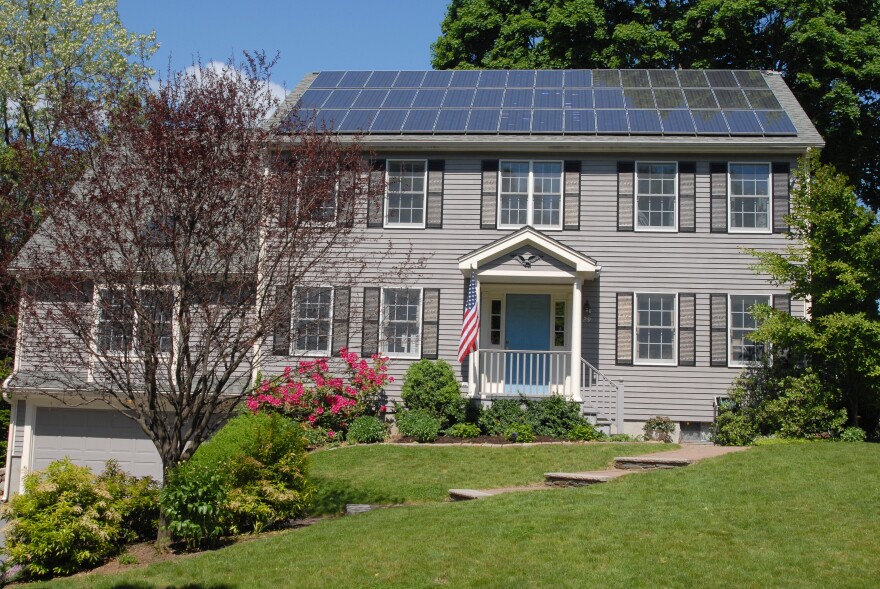A bill that could change the fate of solar energy in the state has sailed through the state legislature, passing through the Senate and the House within a week.
Senate Bill 100 would give state utility regulators authority to determine the credit that solar customers receive for the electricity they feed back into the grid.
The House amended the bill to add some protections for the solar industry and residential solar customers, but opponents say it still has underlying problems that will slow the adoption of solar in the state.
The amendment from Republican Rep. Jim DuPlessis ensures utility regulators will consider the benefits as well as the costs of residential solar to utilities. Those benefits include increased grid resiliency, capacity and dampening the effects of market volatility, DuPlessis said.
“Can we help the utilities with their infrastructure costs that they need without pulling the rug out from a fledgling yet growing solar industry?” DuPlessis asked fellow lawmakers on the floor on the House Friday.
The amendment also:
- Allows groups like the Kentucky Solar Industry Association to intervene on behalf of solar customers when regulators set exchange rates.
Provides a 10-year grandfather period for anyone who purchases solar for their home after the initial case sets the new rate, but before 2024.
Allows leasing of solar systems to third parties without violations utility monopolies on territories.
Kentucky Solar Association President Matt Partymiller praised the amendment as a fair compromise.
“We appreciate his collaborative efforts as well as the strong bipartisan support for the amended bill,” Partymiller said.
SB 100 passed on a 71 to 24 vote Friday. Because the bill was amended in the House, it now goes back to the Senate for approval.
How The Credits Would Work
Right now, people with solar panels on their rooftops get a kilowatt credit for the extra energy they put back on the grid. So if there’s extra at the end of the month, that credit goes toward a future bill.
This bill would change that to a dollar credit. Kentucky Resources Council Director Tom FitzGerald says that opens solar customers to taxation and regulation as wholesale power producers.
Utilities and Republicans including Rep. Jim Gooch say power companies pay unfairly high prices for the excess retail power that solar customers generate. Gooch says those costs are passed onto all ratepayers, not just those who excess generate solar power.
“When we in legislation mandate something that may cost individual ratepayers, then yes I have a problem with that and that’s why this bill is needed," said Gooch, who has pushed for similar legislation the last three years.
FitzGerald says the cost passed onto ratepayers is negligible at best, and is equivalent to about a penny or less.
This post has been updated.


